The 2024 NJ Saltwater Regulations are designed to ensure the conservation and sustainability of marine resources. These rules apply to all fish in state waters or landed in New Jersey, regardless of catch location. Anglers must comply with the NJ Saltwater Recreational Registry Program and adhere to size limits, bag limits, and seasonal restrictions to promote healthy fish populations and sustainable fishing practices.
Overview of 2024 NJ Saltwater Regulations
The 2024 NJ Saltwater Regulations provide a comprehensive framework for managing marine resources; These rules apply to all fish species in state waters or landed in New Jersey, ensuring consistency and conservation. Key components include size limits, bag limits, and seasonal closures to protect fish populations. Anglers must comply with the NJ Saltwater Recreational Registry Program, while also adhering to gear restrictions and prohibited practices. Proper fish measurement techniques are emphasized, with specific guidelines for species like Black Sea Bass and Sharks. The regulations promote sustainable fishing practices and conservation efforts, ensuring healthy marine ecosystems for future generations. For detailed information, anglers can download the official 2024 NJ Saltwater Fishing Regulations PDF, which outlines all requirements and guidelines for recreational fishing in New Jersey.
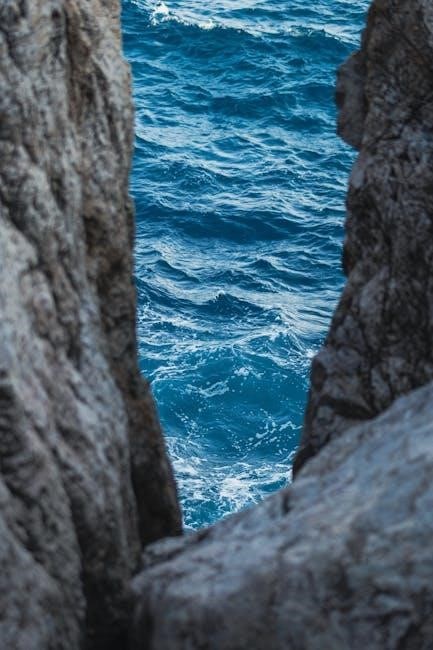
Species-Specific Regulations
The 2024 NJ Saltwater Regulations include species-specific rules for Striped Bass, Bluefish, Summer Flounder, Black Sea Bass, Scup, Shark, and Tautog. These regulations detail size, bag limits, and seasons to protect populations and support conservation efforts.
Striped Bass Regulations
For 2024, Striped Bass regulations in New Jersey include a minimum size limit of 28 inches for recreational anglers, with a bag limit of one fish per person. The season runs from May 4 to September 25, allowing anglers to target this popular species during its peak activity. Additionally, the Striped Bass Bonus Program permits anglers to harvest one fish between 24 and 28 inches, but this is optional and requires registration. Gear restrictions, such as the use of circle hooks when bait fishing, are in place to reduce bycatch and promote sustainable practices. Anglers must also adhere to prohibitions on gaffing fish that are to be released. It is essential to consult the Marine Digest for detailed program specifics and updates to ensure compliance with all regulations.
Bluefish Regulations
For 2024, Bluefish in New Jersey have no closed season, allowing anglers to target this species year-round. The minimum size limit for Bluefish is 10 inches, and the bag limit is set at 10 fish per person. These regulations aim to balance recreational and commercial fishing interests while maintaining a healthy population. Gear restrictions, such as the prohibition of certain nets, are in place to minimize bycatch and protect juvenile fish. Anglers are encouraged to practice catch-and-release fishing for smaller Bluefish to support conservation efforts. Additionally, proper handling and release techniques are recommended to reduce mortality rates. Adhering to these regulations ensures the sustainability of Bluefish stocks for future generations of anglers.
Summer Flounder Regulations
The 2024 Summer Flounder regulations in New Jersey include an open season from May 4 to September 25. The minimum size limit for Summer Flounder is 16.5 inches, with a bag limit of 4 fish per person. These rules are designed to protect the species and ensure sustainable fishing practices. Anglers must adhere to these size and possession limits to help conserve Summer Flounder populations. Additionally, gear restrictions and proper fish-handling techniques are encouraged to minimize mortality rates. The regulations apply to all recreational anglers fishing in state waters or landing Summer Flounder in New Jersey, regardless of where the fish were caught. Compliance with these measures is crucial for maintaining healthy fish stocks and supporting long-term ecological balance.
Black Sea Bass Regulations
The 2024 New Jersey saltwater regulations for Black Sea Bass include a minimum size limit of 12.5 inches and a bag limit of 10 fish per person. The open season for Black Sea Bass runs from May 17 to June 19. Anglers are required to measure fish from the tip of the snout to the end of the tail, excluding the tail filament. Cleaning or filleting Black Sea Bass with a minimum size limit while at sea is prohibited to ensure compliance with conservation efforts. These regulations aim to protect the species and maintain sustainable fish populations. Adhering to these rules is essential for the long-term health of Black Sea Bass stocks in New Jersey waters.
Scup Regulations
For 2024, the Scup regulations in New Jersey include a minimum size limit of 10 inches and a bag limit of 10 fish per person. Anglers are permitted to harvest Scup year-round, but there may be specific closed periods or additional restrictions in certain areas to ensure sustainability. Fish are measured from the tip of the snout to the end of the tail, excluding the tail filament. Cleaning or filleting Scup with a minimum size limit while at sea is prohibited. These regulations are designed to conserve Scup populations and maintain the balance of marine ecosystems. Adhering to these rules is crucial for the long-term health of Scup stocks and the overall sustainability of New Jersey’s saltwater fisheries.
Shark Regulations
In 2024, New Jersey has implemented specific regulations for shark species to ensure their conservation and sustainable use. The minimum size limit for certain shark species, such as shortfin mako, blue, and thresher sharks, is set at 54 inches fork length. Anglers are prohibited from removing shark fins at sea, and the practice of “finning” is strictly regulated. Additionally, the use of circle hooks is mandated to reduce bycatch and protect vulnerable species. Recreational anglers are encouraged to practice catch-and-release fishing for many shark species to aid in population recovery. These regulations aim to balance recreational and commercial fishing interests while promoting the long-term health of shark populations and marine ecosystems.
Tautog Regulations
In 2024, the New Jersey saltwater regulations for tautog include a minimum size limit of 16 inches for recreational anglers, with a bag limit of 4 fish per person. The season for tautog is open from April 1 to December 31, allowing anglers to target this species throughout most of the year. Gear restrictions may apply, and anglers are encouraged to practice sustainable fishing practices, such as avoiding undersized fish and handling them carefully to promote survival if released. These regulations aim to conserve tautog populations while providing opportunities for recreational fishing. Anglers are reminded to check the latest updates in the 2024 NJ Saltwater Fishing Regulations PDF for any changes or additional restrictions.
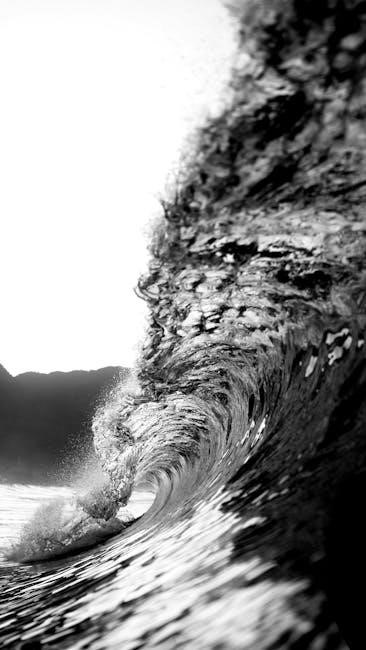
Licensing and Registration Requirements
All saltwater anglers in New Jersey must register with the New Jersey Saltwater Recreational Registry Program. A fee applies for both residents and non-residents. Registration is mandatory regardless of age, though seniors and anglers under 16 may be exempt. Licensing ensures compliance with state and federal regulations, supporting conservation efforts. Visit the official NJ website for detailed instructions and exemptions. Proper registration helps manage fish populations and ensures sustainable fishing practices for future generations.
New Jersey Saltwater Recreational Registry Program
The New Jersey Saltwater Recreational Registry Program is a mandatory registration for all saltwater anglers. It applies to both residents and non-residents aged 16 to 64. The program aims to collect data on recreational fishing activities to inform conservation and management decisions. Registration is required even if fishing from a private boat, kayak, or shore. Exemptions include seniors (65 and older), individuals under 16, and those fishing on licensed party or charter boats. The registry is free for New Jersey residents but requires a fee for non-residents. Anglers must carry proof of registration while fishing. This program helps ensure sustainable fish populations and compliance with federal and state regulations. Visit the NJ Fish and Wildlife website for registration details and exemptions. Proper registration supports conservation efforts and ensures access to saltwater fishing resources for future generations.
License Requirements for Saltwater Anglers
All saltwater anglers in New Jersey must comply with specific licensing requirements. A valid fishing license is mandatory for residents and non-residents aged 16 to 64. Residents can obtain a free recreational saltwater fishing license, while non-residents must purchase an annual or temporary license. Exemptions apply to seniors (65 and older) and individuals under 16. Licenses can be obtained through the New Jersey Fish and Wildlife website or at local tackle shops. Anglers must carry their license while fishing and present it upon request by enforcement officers. Failure to comply may result in penalties. These requirements help manage fish populations and ensure sustainable fishing practices for future generations. Proper licensing is essential for maintaining access to New Jersey’s saltwater fishing resources.
Bag Limits and Size Restrictions
Bag limits and size restrictions are essential for sustainable fishing. Anglers must adhere to minimum size limits and possession limits for each species to ensure resource conservation.
Minimum Size Limits for Key Species
Minimum size limits are crucial for ensuring sustainable fishing practices. For 2024, key species have specific size requirements: Black Sea Bass must be at least 12.5 inches, while Striped Bass require a minimum of 28 inches. Bluefish have no minimum size limit, but Summer Flounder must measure at least 16.5 inches. Sharks also have varying minimum sizes depending on the species. Fish are measured from the tip of the snout to the end of the tail, except for Black Sea Bass and Sharks, which have specific measurement guidelines. Anglers must ensure all catches meet these size requirements before considering them part of their bag limit. Cleaning or filleting undersized fish while at sea is strictly prohibited. Adhering to these limits helps protect fish populations and maintain ecosystem balance. Refer to the 2024 NJ Saltwater Regulations PDF for the full guide.

Bag Limits for Recreational Anglers
Bag limits for recreational anglers in New Jersey are established to ensure the sustainability of marine species. These limits vary by species and are designed to prevent overfishing. For example, Black Sea Bass have a bag limit of 10 per person, while Bluefish allow 3 per person. Striped Bass have a 1-fish bag limit for the 28–31-inch slot, with an optional bonus permit for an additional fish. These limits apply to fish caught in state waters or landed in New Jersey, regardless of where they were caught. Exceeding bag limits can result in penalties, so anglers must carefully track their catch. Additionally, cleaning or filleting fish with minimum size limits while at sea is prohibited to ensure compliance with regulations. Adhering to bag limits helps conserve fish populations for future generations. Refer to the 2024 NJ Saltwater Regulations PDF for species-specific details.

Fishing Seasons and Closures
Fishing seasons and closures are essential for conservation. Open seasons like Summer Flounder (May 4–Sept 25) ensure sustainable fishing. Closed periods protect vulnerable species during critical life stages.
Open Seasons for 2024
The 2024 open seasons for saltwater fishing in New Jersey are designed to balance recreational and conservation needs. Key species like Summer Flounder have an open season from May 4 to September 25, while Black Sea Bass is open from May 17 to June 19. Bluefish has no closed season, allowing year-round fishing. These dates are set to protect spawning periods and ensure sustainable fish populations. Anglers must adhere to these timelines to comply with state regulations. The open seasons are clearly outlined in the 2024 NJ Saltwater Regulations PDF, providing a comprehensive guide for anglers. By following these seasons, anglers contribute to the conservation of marine resources for future generations. Always check the official PDF for the most accurate and up-to-date information.
Closed Seasons and Conservation Closures
Closed seasons and conservation closures are critical components of the 2024 NJ Saltwater Regulations, ensuring the protection of marine species during vulnerable life stages. For example, Black Sea Bass has a closed season from June 20 to May 16 to safeguard spawning populations. Similarly, Summer Flounder has specific closures to prevent overfishing during peak spawning periods. These closures are enforced to maintain healthy fish populations and ecosystems. Anglers must respect these conservation measures to support sustainable fishing practices. The 2024 NJ Saltwater Regulations PDF provides detailed information on all closed seasons and conservation closures, helping anglers stay compliant and contribute to the long-term health of marine resources.
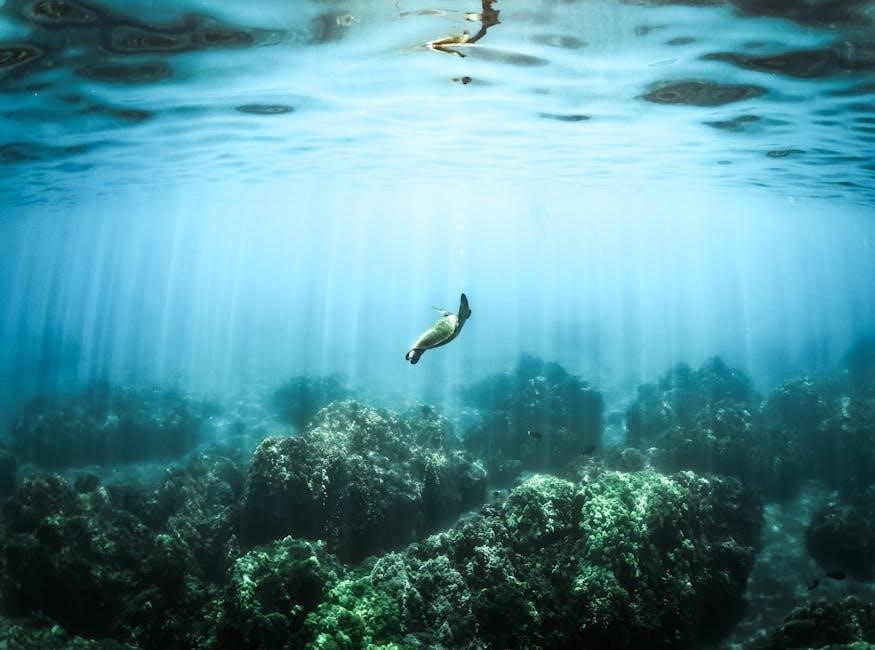
Gear Restrictions and Prohibitions
The 2024 NJ Saltwater Regulations prohibit certain fishing gear to protect marine life. Gaffs are restricted for specific species, and circle hooks are required for catch-and-release fishing to reduce bycatch and promote sustainable fishing practices.
Prohibited Gear in Saltwater Fishing
In 2024, New Jersey prohibits specific gear to minimize environmental impact. Certain traps, nets, and hooks are banned to protect marine ecosystems and ensure sustainable fishing. Anglers must avoid using gear that can cause excessive bycatch or habitat damage. The use of gaffs is restricted for specific species to prevent unnecessary injury to fish. Additionally, the cleaning or filleting of fish with minimum size limits while at sea is prohibited. These restrictions aim to conserve fish populations and maintain ecological balance. Compliance with these gear prohibitions is essential for the long-term health of marine resources and ensures fair access for all anglers.
Circle Hook Requirements
In 2024, New Jersey saltwater fishing regulations mandate the use of circle hooks in specific fishing practices. Circle hooks are required to reduce bycatch and minimize injuries to fish, promoting sustainable fishing. Anglers targeting species like striped bass must use circle hooks when employing bait, as outlined in the Striped Bass Bonus Program. This regulation aims to enhance fish survival rates and conservation efforts. Proper use of circle hooks ensures compliance with state and federal guidelines, contributing to the long-term health of marine ecosystems. Anglers should familiarize themselves with these requirements to avoid penalties and support responsible fishing practices. Measurement guidelines and handling techniques are also emphasized to ensure adherence to these regulations. Circle hooks play a critical role in balancing recreational fishing with environmental stewardship. By adhering to these mandates, anglers help preserve New Jersey’s marine resources for future generations. Additionally, the use of circle hooks aligns with broader conservation goals, ensuring that fishing remains a sustainable and enjoyable activity. This requirement underscores the importance of ethical angling practices and the collective effort to protect marine life. Compliance with circle hook regulations is a key component of maintaining healthy fish populations and ecosystems. Through these measures, New Jersey continues to lead in responsible fisheries management, setting a precedent for other regions to follow. The implementation of circle hook requirements reflects a commitment to innovation and environmental responsibility in the fishing community. By prioritizing sustainable gear, anglers actively contribute to the preservation of marine biodiversity. This approach not only benefits the environment but also ensures the viability of recreational fishing for years to come. As a result, circle hooks have become a cornerstone of modern, eco-conscious fishing practices in New Jersey. Their adoption signifies a proactive step toward mitigating the impact of fishing activities on vulnerable species and habitats. In conclusion, the circle hook requirement is a vital aspect of New Jersey’s 2024 saltwater fishing regulations, fostering a balance between recreation and conservation. Anglers are encouraged to embrace this regulation as part of their commitment to responsible and sustainable fishing practices. Circle hooks are not only a legal necessity but also a symbol of the fishing community’s dedication to environmental stewardship. By understanding and adhering to these requirements, anglers can play an active role in preserving New Jersey’s rich marine heritage. The circle hook mandate serves as a reminder of the importance of adapting fishing practices to meet contemporary conservation challenges. Through collective efforts, the fishing community can ensure that marine resources remain thriving and accessible for future generations. This regulation highlights the interconnectedness of human activity and environmental health, emphasizing the need for mindful and regulated fishing practices. Ultimately, the use of circle hooks in New Jersey’s saltwater fishing regulations represents a forward-thinking approach to balancing recreation with conservation, ensuring that the state’s marine ecosystems remain vibrant and resilient. By supporting this initiative, anglers demonstrate their commitment to the sustainable management of marine resources, paving the way for a healthier and more sustainable fishing industry. The circle hook requirement is a testament to the ongoing collaboration between policymakers, conservationists, and the fishing community to protect and preserve New Jersey’s marine environment. As the fishing community continues to evolve, the adoption of innovative and environmentally friendly practices like the use of circle hooks will remain essential to achieving long-term conservation goals. This regulation serves as a model for other regions seeking to implement similar measures, showcasing the positive impact of responsible fishing practices on marine ecosystems. By adhering to circle hook requirements, anglers in New Jersey contribute to a larger movement toward sustainable fisheries management, ensuring that the benefits of fishing are equitably shared while minimizing ecological impact. The circle hook requirement is a significant step forward in the pursuit of conservation and sustainability, reflecting the shared values of the fishing community and environmental stakeholders. Through this regulation, New Jersey reaffirms its leadership in progressive fisheries management, setting a standard that others can aspire to and emulate. The circle hook requirement is a clear example of how regulatory measures can align with environmental goals, creating a framework that supports both recreational fishing and marine conservation. By prioritizing the use of circle hooks, New Jersey’s saltwater anglers are actively engaged in protecting the marine environment, ensuring that fishing remains a viable and sustainable activity for generations to come. This regulation underscores the importance of continuous improvement in fishing practices, encouraging anglers to adopt methods that minimize harm to fish and habitats. The circle hook requirement is a powerful tool in the broader strategy to conserve marine resources, demonstrating the effectiveness of collaborative efforts between policymakers and the fishing community. By embracing this regulation, anglers in New Jersey are not only complying with legal requirements but also contributing to the preservation of marine biodiversity and ecosystem health. The circle hook requirement is a shining example of how innovation and regulation can intersect to achieve meaningful environmental outcomes, ensuring that fishing practices evolve in harmony with conservation priorities. Through this mandate, New Jersey continues to champion the cause of sustainable fishing, inspiring others to follow suit and adopt similar measures to protect marine ecosystems. The circle hook requirement is a cornerstone of the state’s 2024 saltwater fishing regulations, symbolizing a commitment to environmental responsibility and sustainable resource management. By adhering to this regulation, anglers play a pivotal role in safeguarding New Jersey’s marine heritage, ensuring that the state’s waters remain a vibrant and productive fishing ground for years to come. The circle hook requirement is a testament to the enduring partnership between the fishing community and conservationists, working together to balance recreational interests with environmental protection. This regulation serves as a blueprint for effective fisheries management, demonstrating how targeted measures can yield positive results for both fish populations and anglers alike. By supporting the circle hook requirement, the fishing community in New Jersey is helping to shape a future where fishing and conservation go hand in hand, ensuring the long-term health of marine ecosystems. The circle hook requirement is a vital component of New Jersey’s 2024 saltwater fishing regulations, reflecting the state’s dedication to innovative and sustainable fisheries management. By complying with this regulation, anglers are not only upholding the law but also contributing to the preservation of marine life and the integrity of ecosystems. The circle hook requirement exemplifies the state’s proactive approach to environmental stewardship, highlighting the importance of adapting fishing practices to meet contemporary conservation challenges. Through this regulation, New Jersey continues to lead the way in responsible and sustainable fishing practices, setting an example for other regions to follow. The circle hook requirement is a key element in the state’s broader strategy to balance recreational fishing with environmental conservation, ensuring that marine resources remain abundant and accessible for future generations. By embracing this regulation, anglers in New Jersey are actively supporting the conservation of marine biodiversity and the sustainability of fisheries. The circle hook requirement is a significant achievement in the ongoing effort to protect marine ecosystems, demonstrating the positive impact of collaborative efforts between policymakers, conservationists, and the fishing community. This regulation serves as a powerful reminder of the importance of responsible fishing practices and the role that anglers play in preserving marine environments. By adhering to the circle hook requirement, the fishing community in New Jersey is helping to ensure that the state’s marine resources remain healthy and productive for years to come. The circle hook requirement is a testament to the state’s commitment to progressive and sustainable fisheries management, offering a model for other regions to adopt similar measures. Through this regulation, New Jersey continues to champion the cause of environmental conservation, ensuring that fishing practices evolve in harmony with ecological priorities. The circle hook requirement is a clear example of how regulatory measures can align with environmental goals, creating a framework that supports both recreational fishing and marine conservation. By prioritizing the use of circle hooks, New Jersey’s saltwater anglers are actively engaged in protecting the marine environment, ensuring that fishing remains a viable and sustainable activity for generations to come. The circle hook requirement is a cornerstone of the state’s 2024 saltwater fishing regulations, symbolizing a commitment to environmental responsibility and sustainable resource management. By adhering to this regulation, anglers play a pivotal role in safeguarding New Jersey’s marine heritage, ensuring that the state’s waters remain a vibrant and productive fishing ground for years to come. The circle hook requirement is a testament to the enduring partnership between the fishing community and conservationists, working together to balance recreational interests with environmental protection. This regulation serves as a blueprint for effective fisheries management, demonstrating how targeted measures can
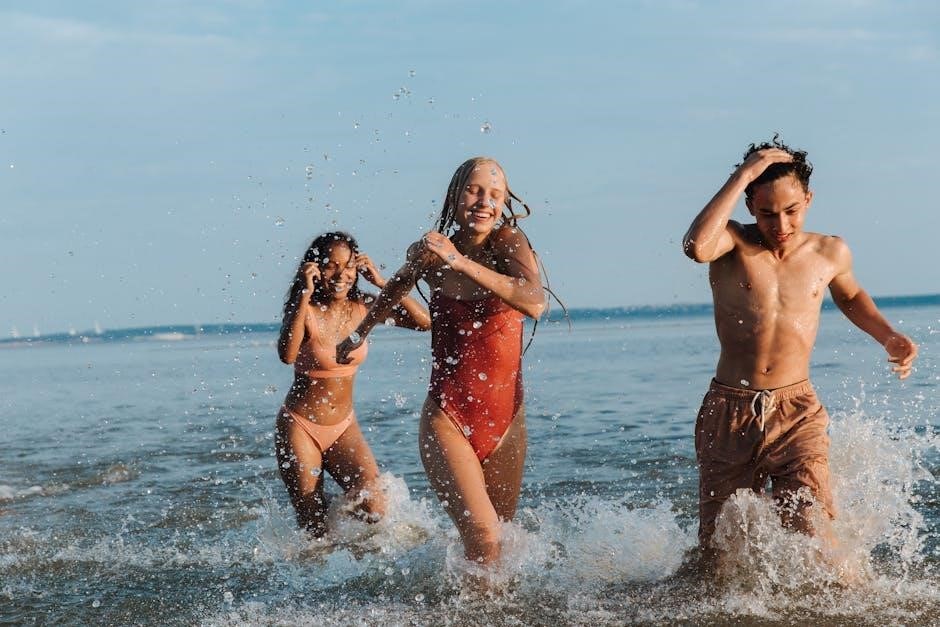
Measurement Guidelines
Fish are measured from the tip of the snout to the tip of the tail, except for Black Sea Bass and Sharks. Cleaning or filleting fish with a minimum size limit while at sea is prohibited.
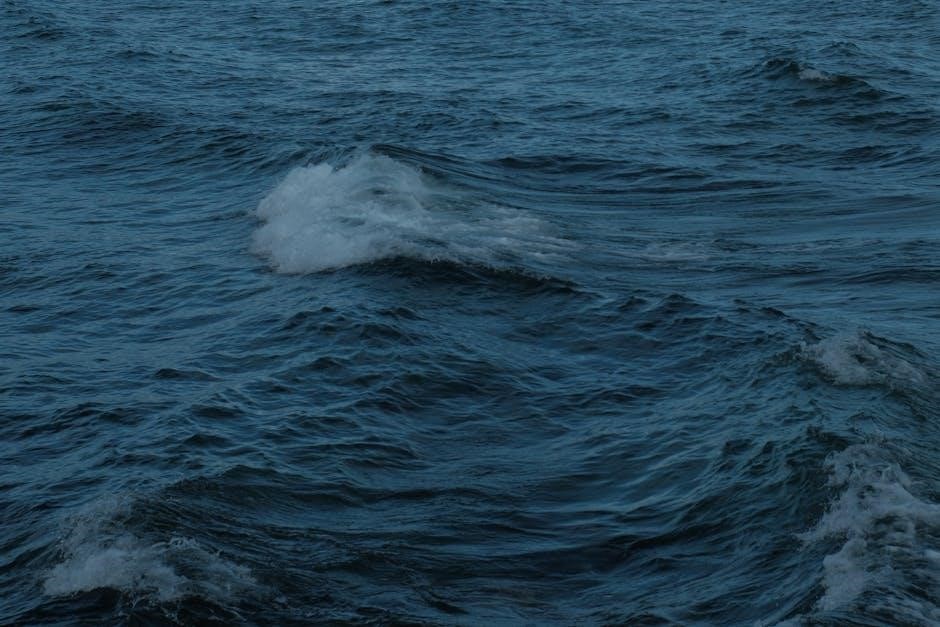
How Fish Are Measured
Fish measurements are taken from the tip of the snout to the tip of the tail, providing a consistent method for determining compliance with size limits; This standard applies to most species, except for Black Sea Bass and Sharks, which have specific measurement guidelines. Anglers must ensure fish are measured accurately to avoid violations. Cleaning or filleting fish with a minimum size limit while at sea is strictly prohibited, as this can hinder accurate measurement by enforcement officers. Proper measurement practices help conserve fish populations and ensure sustainable fishing practices. Always refer to the official 2024 NJ Saltwater Regulations for species-specific measurement details to stay compliant.
Prohibited Practices in Fish Handling
Certain handling practices are prohibited to protect fish populations and ensure sustainable fishing. Cleaning or filleting fish with minimum size limits while at sea is strictly forbidden, as it can prevent accurate measurement by enforcement officers. Additionally, the use of gaffs on certain species, like striped bass, is regulated to minimize injury and promote survival. Proper handling techniques, such as avoiding excessive handling and using appropriate gear, are encouraged to reduce mortality rates. Anglers must also avoid practices that damage fish, making them unfit for release. Adhering to these guidelines helps conserve marine resources and supports the effectiveness of fishery management efforts. Always refer to the 2024 NJ Saltwater Regulations for detailed information on prohibited practices.

Conservation Efforts and Sustainability
The 2024 NJ Saltwater Regulations prioritize conservation to maintain healthy fish populations and promote sustainability. Adhering to size limits, bag limits, and seasonal restrictions supports these efforts, ensuring fishing remains viable for future generations.
Importance of Adhering to Regulations
Compliance with the 2024 NJ Saltwater Regulations is crucial for maintaining balanced marine ecosystems. By following size limits, bag limits, and seasonal closures, anglers help protect fish populations from overfishing and ensure long-term sustainability. Proper handling and release techniques reduce mortality rates, while adhering to gear restrictions minimizes habitat damage. These practices not only conserve fish stocks but also support the recreational and commercial fishing industries. Responsible fishing fosters a sustainable future, allowing future generations to enjoy New Jersey’s rich marine resources. Awareness and adherence to these rules are vital for the conservation of marine life and the integrity of the fishing community.
Practices for Sustainable Fishing
Sustainable fishing practices are essential for preserving New Jersey’s marine resources. Anglers should always catch fish within the designated size and bag limits to avoid overfishing. Handling fish gently and using proper release techniques can significantly reduce mortality rates. Using circle hooks, as required, helps minimize bycatch and protects vulnerable species. Avoiding fishing in areas with sensitive habitats or during closed seasons further supports conservation efforts. Additionally, keeping the marine environment clean by disposing of waste properly contributes to ecosystem health. By adopting these practices, anglers play a key role in maintaining healthy fish populations and ensuring the long-term sustainability of New Jersey’s saltwater fisheries.
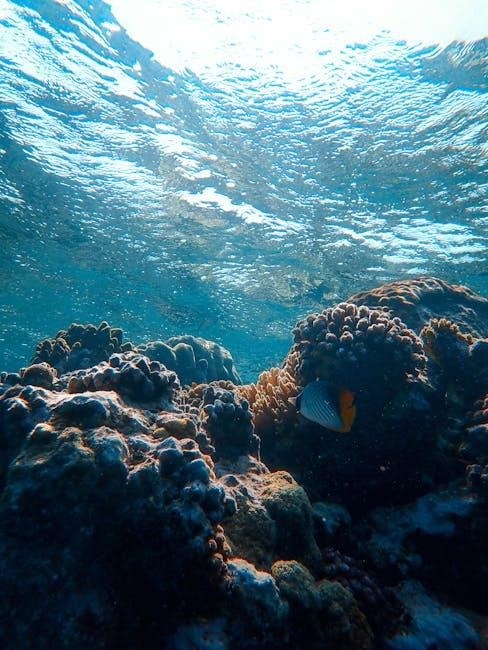
Enforcement and Penalties
Fish and Wildlife officers strictly enforce saltwater regulations to ensure compliance. Violations, such as exceeding bag limits or undersized catches, may result in fines or license suspensions. Penalties are imposed to protect marine resources and maintain sustainable fishing practices for future generations.
Role of Fish and Wildlife Officers
Fish and Wildlife officers play a crucial role in enforcing New Jersey’s saltwater fishing regulations. They patrol state waters to ensure compliance with size limits, bag limits, and seasonal restrictions. Officers conduct inspections of fishing gear, catches, and licenses to prevent illegal activities. Their efforts help protect marine ecosystems and ensure sustainable fish populations. By educating anglers about regulations and promoting responsible fishing practices, officers contribute to the conservation of New Jersey’s marine resources for future generations. Their work is essential in maintaining the balance between recreational fishing and environmental stewardship, ensuring that the state’s saltwater fisheries remain healthy and productive.
Penalties for Violating Regulations
Violating New Jersey’s saltwater fishing regulations can result in significant penalties. Fines for offenses such as exceeding bag limits, fishing during closed seasons, or possessing undersized fish can range up to $500 for a first offense and increase for repeat violations. Additional penalties may include the suspension or revocation of fishing licenses. In severe cases, such as the use of prohibited gear or illegal fishing practices, fines can escalate further, and fishing equipment may be confiscated. Anglers are also required to comply with the New Jersey Saltwater Recreational Registry Program, with failure to register potentially resulting in a $100 fine. Adhering to regulations is crucial to avoid legal consequences and support conservation efforts.
Resources for Anglers
Download the 2024 NJ Saltwater Fishing Regulations PDF for essential info on seasons, size limits, and licensing. Visit eRegulations.com or the NJ Fish and Wildlife website for detailed guides and updates.
Downloadable 2024 NJ Saltwater Regulations PDF
The official 2024 NJ Saltwater Fishing Regulations PDF is now available for download. This comprehensive guide provides detailed information on size limits, bag limits, and open seasons for various saltwater species. Anglers can access the PDF through the NJ Fish and Wildlife website or via eRegulations.com. The document also includes instructions for complying with the NJ Saltwater Recreational Registry Program and tips for sustainable fishing practices. By downloading the PDF, anglers can ensure they have the most up-to-date rules and regulations at their fingertips, helping them stay compliant and contribute to the conservation of New Jersey’s marine resources.
